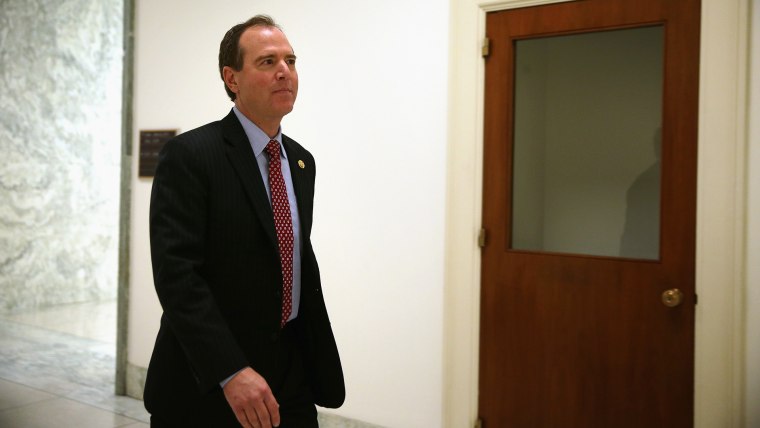The burgeoning controversy surrounding the Trump administration withholding a complaint from an intelligence-community whistleblower is starting to intensify. It was good to see the editorial board of the Washington Post publish a piece on this overnight:
Mr. Trump has made plain his distaste for congressional oversight. Elsewhere, he's resisting disclosure of his tax returns to the House Ways and Means Committee, although the law in that case also is straightforward. Oversight is a vital function of Congress, one that's not always performed as strenuously as it should be. At the same time, the Supreme Court has ruled that it can't lead to boundless inquisitions. [...]In the case of the intelligence-community whistleblower, this clearly falls under the definition of a legitimate task of Congress. Someone inside the intelligence community decided to follow the rules and filed this complaint for a reason. Neither [acting Director of National Intelligence Joseph Maguire] nor Mr. Trump should be able to conceal such information. They should respect and uphold the law, not contravene it.
As Rachel explained on the show last night, the available facts in this matter do not appear to be in dispute. Someone within the U.S. intelligence community sent a complaint to the intelligence community's inspector general, and while we don't know about the nature of the complaint, the IG reviewed it and found it credible.
Just as importantly, the matter was deemed "urgent."
Under our system, this is supposed to set a series of dominoes in motion, including an alert to the director of National Intelligence. That, by all accounts is what occurred. (There is currently no Senate-confirmed DNI, but Joseph Maguire is there in an acting capacity.)
At that point, by law, the DNI has seven days to alert the congressional Intelligence committees. And that's the step the Trump administration, at least for now, is refusing to take.
Instead, Maguire told House Intelligence Committee Chairman Adam Schiff (D-Calif.) that the complaint refers to someone outside the intelligence community and it involves matters that are privileged. This, evidently, was supposed to justify the DNI's legally dubious secrecy.
Not surprisingly, this has led to some speculation about whether the complaint is about Donald Trump -- which also raises the specter of the acting DNI, appointed by the president, ignoring his legal obligations, and withholding a credible whistleblower complaint, possibly to protect Trump from yet another scandal.
Which, in itself, might be considered scandalous.
Schiff has subpoenaed the withheld materials, demanding that the DNI give the House Intelligence Committee the information by today. If that doesn't happen, Schiff expects Maguire to appear before the committee on Thursday.
The Democratic lawmaker also spoke to CNN's Anderson Cooper last night, and while the interview is worth checking out in its entirety, these comments from Schiff stood out for me:
"I think three or four weeks ago the complaint was filed. The inspector general then had two weeks to do the investigation which he did. He found it credible, probably because he was able to corroborate some portion of it. And then it was given to the DNI."And then we sat down and confronted -- over the phone -- the DNI on this and frankly the conversation was not very encouraging. I asked the director. 'Does this involve something that our committee is investigating?' And initially the answer was, 'No,' and then his legal counsel had to correct him and say, 'Actually we can't say that.'"
To be sure, there's a lot about this story that we don't yet know, and it's possible that it's more benign than it may seem.
But when the Trump administration ignores legal requirements and hides potentially important information from Congress, it's hardly unreasonable to wonder why.
